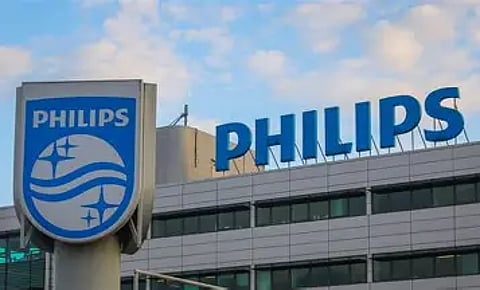

Philips, a global leader in health technology, has introduced a new telemetry platform aimed at solving pressing challenges in healthcare such as staff shortages and alarm overload. At the heart of the solution is the next-generation Telemetry Monitor 5500, designed to enhance cardiac monitoring with a comprehensive, data-driven approach to improve both operational efficiency and patient care.
Telemetry overuse can strain frontline teams, disrupt hospital operations, and pose patient safety risks. Studies indicate that care teams may encounter an average of 350 alarms per patient daily, contributing to alarm fatigue and cognitive burden. The new platform addresses these concerns by streamlining alarm management, automating clinical tasks, and offering flexible networking options
“We continue to hear how disruptive non-actionable alarms and repetitive tasks can be. This platform will be a game-changer, offering a unified solution built to optimize telemetry across the care continuum,” said Ajay Parkhe, Business Leader, Hospital Patient Monitoring at Philips. “The combination of advanced clinical decision support tools, data-driven analytics, and secure monitoring empowers health systems to deliver better care while improving efficiency and reducing alarm burden.”
The telemetry platform integrates with Philips’ Central Monitoring Unit (CMU) and supports:
Simplified workflows with a compact, wearable monitor featuring a lightweight design and touchscreen, allowing patients to remain mobile during continuous monitoring.
Scalable monitoring to expand high-acuity bed capacity during emergency surges.
Filtered alarms that reduce non-actionable alerts, supporting calmer healing environments.
Retrospective monitoring insights to identify alarm trends, patient deterioration, and telemetry utilization patterns.
Mobile coordination tools via the Care Assist app, enabling admissions, transfers, wave strip capture, and team communication within the hospital network.
Additionally, Philips extends monitoring beyond hospital walls with its Mobile Cardiac Telemetry (MCOT), enabling clinicians to track patients for up to 30 days post-discharge. This service helps bridge the transition from inpatient to outpatient care while maintaining continuity and patient safety.
The Philips monitoring ecosystem integrates patient data across devices and systems, powered by predictive algorithms, early warning scores, workflow automation, and advanced visualizations. The goal is to create smart, human-centric healing environments that improve patient outcomes while easing clinical workload.
By combining innovation with sustainability, Philips continues to provide solutions that help clinicians deliver better care to more people.